Who is this guy?
I was sitting behind my booth — stomach growling, extremely sleep deprived, and shaking with stress. The market had just opened, and over three months of work were riding on how many people showed up. But, more importantly, a newly formed Ukrainian assault brigade — fighting in one of the most important theatres of the war – was depending on me (some student from Alberta) to raise funds to purchase critical equipment for the frontlines. Thinking back a year ago, I don’t think I ever would have imagined I would have managed to place myself in this situation.
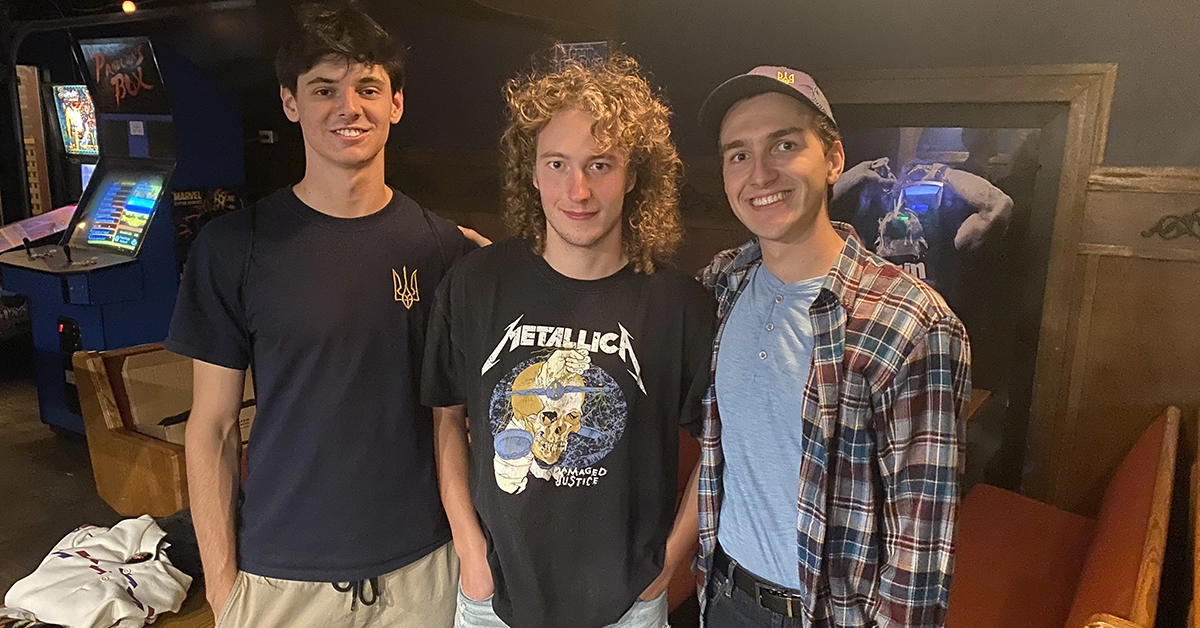
Context
On Feb. 24, 2022, the Russian Federation began the full-scale invasion of Ukraine, an escalation of a war which started with Russia’s annexation of Crimea in 2014. I watched Putin’s speech announcing the “Special Military Operation”, and knew that I couldn’t sit back and do nothing. What Russia is doing in Ukraine, I believe, is the transformation of a corrupt dictatorship into some sort of quasi-fascist state. You see it with Russian state television erasing Ukrainian culture by claiming it was a Lenin invention while Russian forces execute Ukrainian civilians and abduct Ukrainian children. To me, the invasion was feeling like a rerun of the 1930’s in which the collective West tried to appease a certain dictator until it was too late. As someone who considers themselves a latent antifascist, I feel as though I have a duty to assist this democracy fight off its oppressors. And I know if Russia succeeds in achieving its goals of conquering Ukraine, then other countries such as Moldova and the Baltics will surely be in the sights next.
I had to do something to help. I can’t fucking stand slacktivism.
I’m not Ukrainian. When I was a kid in Catholic school, it felt like every second kid was Ukrainian. I was immersed in Canadian-Ukrainian culture growing up: dancing, easter egg painting, and pierogies. So, when I saw the missiles hitting Kyiv and tanks crossing the border, it didn’t feel like a war on the other side of the world; it felt like my friends, my neighbours, and my family were being attacked.
In November of 2022, I started volunteering with MacEwan’s Ukrainian Resource and Development Centre. I had the opportunity to speak and collaborate with MacEwan students who were from Ukraine. Hearing the pain and loss they had experienced sickened me. I knew I had to do more.
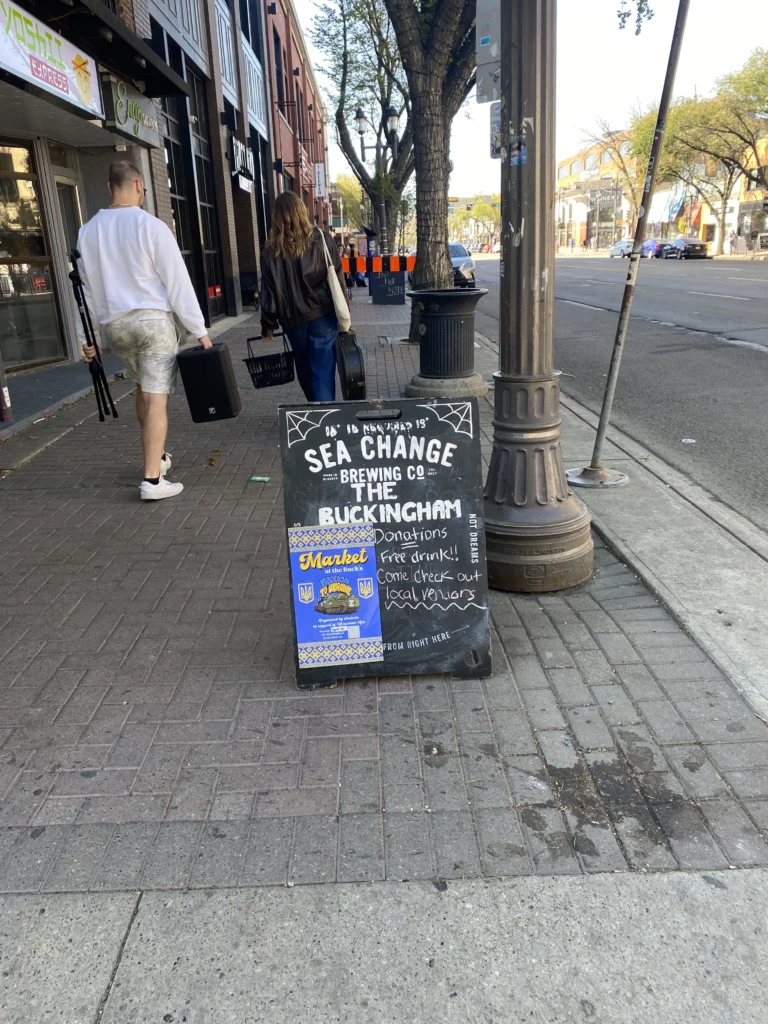
Last February, I held a fundraiser at the Buckingham with the help of its general manager, Matt Spracklin. We raised funds for United24, a charity that supports Ukraine’s efforts in fighting off the Russian invasion. The fundraiser was impromptu, but the bar was packed and we managed to raise around $3,300 while having a great night filled with beverages and great music.
Later in the semester, I did a seminar and Q&A with Aiden Aslin, a British-Ukrainian marine who was captured in the Battle of Mariupol. He was tortured, used for Russian propaganda, and sentenced to death until he was swapped in a prisoner of war exchange. The guy has a good sense of humour about it as well; he started his presentation with a “record scratch-freeze frame” meme of himself being escorted to his sentencing hearing in prison. It was as hilarious as it was seriously messed up.
So, with the two events I spearheaded in the 2023 winter term, I was completely exhausted. I did these events mostly by myself while enrolled in six classes which took a toll on me. I had this sense of duty that I had to help, and kept thinking of the people my age or younger fighting and dying to defend their homes and their way of life. I couldn’t just sit on my hands and let it happen. I knew that it was the Ukrainian Armed Forces that needed support to kick out the invaders. On a whim, I started to plan how to get aid to a Ukrainian military unit without entirely grasping the enormous task I created.
Fundraising for dummies
It’s one thing donating money to a reputable Ukrainian organization, but it’s another thing to be completely in the saddle. I’m just a punk from Edmonton. I had no connections in Ukraine, let alone the Ukrainian military. I also knew that actually purchasing any sort of equipment was going to be expensive, and that an impromptu concert wasn’t going to be enough. It had to be bigger, much bigger than anything I had ever thought of doing. I also knew that taking on such a big project by myself would burn me out quickly. I needed to find other people as crazy as me.
Last May, I sat down with Matt Spracklin again to pitch another fundraiser at the Buckingham. This time the plan was to host a market in the pub with both Ukrainian and vintage vendors in addition to a concert. It sounded like a fucking great Sunday to me. Spracklin was more than happy to help me out again. To organize the event, I contacted the University of Alberta Ukrainian Students’ Society. I sat down with the club’s vice-president internal Cody Mackoway and executive assistant Lukian Podilsky. As soon as I told them that I was looking to raise funds for the Ukrainian military, the boys were ride-or-die with me. I couldn’t be more appreciative of their help and support over the months of collaboration.
The idea was that we wanted a nice range of different types of vendors to bring in as many people as possible. We decided on a day-long event slotted for late August with beer, vintage art, Ukrainian vendors, and live music. We divided up the work, with all three of us sliding into the DMs of potential vendors on Instagram. Lukian and Cody handled talking to vendors in the Ukrainian community as well as getting the word out while I handled the social media and logistics of the operation. I had one of Lukian and Cody’s friends do some of the graphics, while my partner and I did the others. The big issue was to find a unit, get what they needed, and deliver it to them on the frontlines.
I decided to speak to Kevin Royle, who runs Firefighter Aid Ukraine, an organization that sends PPE to first responders in Ukraine. Kevin was a firefighter, former soldier and he knew a lot of people in Ukraine which was important. How aid gets to the frontline in Ukraine is very different than here in Canada. Equipment like medical supplies, night vision sights, uniforms, and rations are all brought over the border in Poland by volunteers who then hand it over to the units. Basically, you need to know a guy who knows a guy… who knows another guy. Trust and vouching for others are so crucial because corruption is a very real thing over there, and you don’t want to have month-long plans go down the drain because you placed your trust in the wrong people. Kevin set me up with a fellow Edmontonian serving in the Ukrainian International Legion. I was then passed from one soldier to another, mostly medics who were training the Ukrainian brigades. After a few weeks of speaking to what felt like a dozen different people over signal, an encrypted messaging app, I was connected with a soldier who went by the call sign “Scala”. Scala was a commander of the Tsunami Regiment, a unit within the Lyut Brigade that was deployed to the Bakhmut area.
Scala is an incredibly blunt man, but also helpful and supportive. As soon as I realized that I didn’t have to worry about things like chain-of-command, we got along great. Even though he knew I was a student, his unit had some big asks, namely thermal imaging cameras, night vision goggles, and medical supplies. I quickly found out that to equip a Ukrainian vehicle with the equipment that they were asking for would cost more than $30,000 CAD. While things like tourniquets, chest seals and infantry first aid kits were fairly easy to procure in both Canada and Europe, night vision goggles and thermals were not. Using my newfound connections, I went down the rabbit hole that was Ukrainian special forces equipment procurement and learned that it was a nightmare to import the equipment and extremely expensive. The cheapest night vision goggles were 2600 euros to acquire in Ukraine. I realized it was a big ask, but I was naïve and I had a lot of hopes for the fundraiser and to keep the momentum going. I still marvel at the friendliness and the support I received from all the different people I spoke to. To know that there are people just like you around the world trying to help the Ukrainians, and the gratefulness and support from the Ukrainians themselves was a huge motivator for me. At this point, I realized just how much money had to be raised, and I started to feel an immense amount of stress and responsibility on my shoulders.
The only thing I really needed from Scala was marketing materials. I wanted to try and show the event attendees the humanity of the conflict. These were real people with lives and families that they were fighting for. Scala sent me pictures of some of his soldiers. I also needed militaria from the front to auction off — a proven way to raise money. Specifically, I was looking at getting patches. Within a month, I had a box from Ukraine full of patches. We got patches from airborne brigades, logistic units and Russian nationalist patches. When I asked Scala how he got the Russian patches, he just replied, “taken off dead Russian pigs.”
Clearly, there was no love lost between Ukrainians and Russians, which I knew. But, it was something completely different to hold the patch and name bar of a human being who lived and killed. It was a very visceral feeling. There was a feeling of disgust over this Russian soldier and the nationalist symbols that adorned his uniform, but also a distinct sense of loss because of the lives thrown away in the war because of a dictator’s imperialist ambitions. I justified my feelings by the facts that they were nationalist patches and the timeframe in which they were acquired suggested that they were taken from a career soldier. The patches ended up being one of the top sellers at our auction.
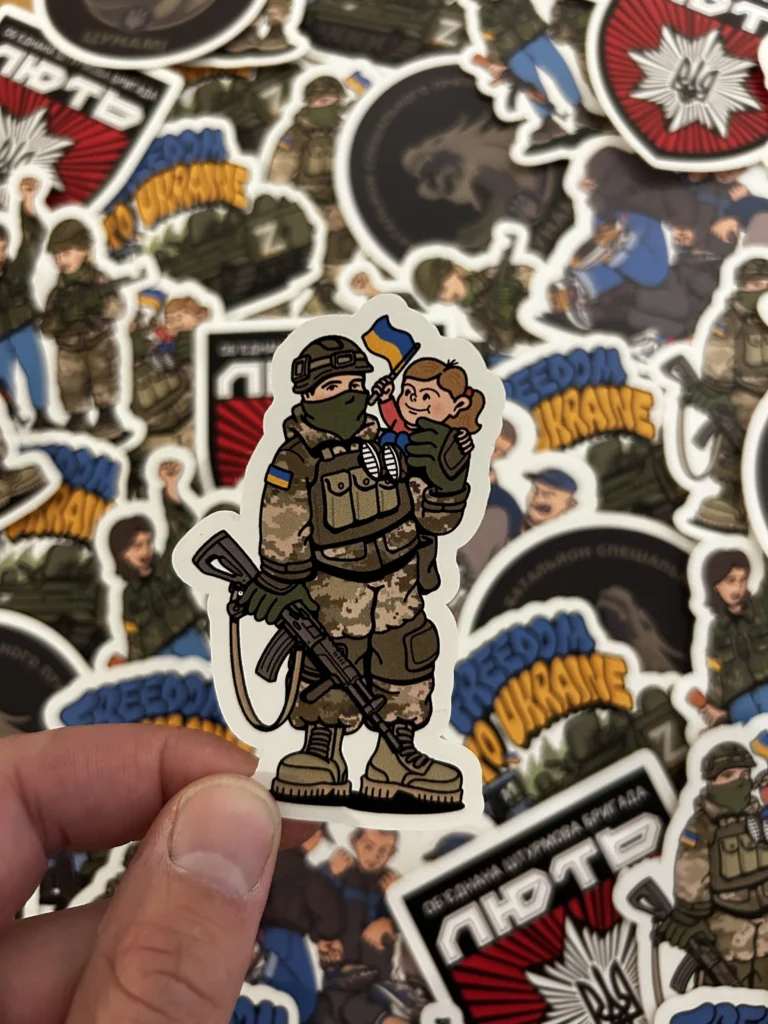
The Canadian side of things was somehow more of a mire than the Ukrainian side. While Lukian and Cody had found a good number of Ukrainian vendors, getting other vendors was difficult. Funnily enough, how logistics in Ukraine was very similar to how vendors for vintage markets worked: trust. We weren’t vouched for as we had no connections in the community. When we were asked about the guaranteed number of people expected to attend, we had no answer for them. It was the end of summer, and we were competing with other markets for vendors. They all had an edge over us; they were more experienced, had more exposure, and were better organized. Not many people were willing to throw us a bone. We were becoming fucked.
Additionally, the concert was not shaping up well. Spracklin was struggling to find someone to play at the concert, and our proposals to musicians were rebuffed. What we had originally thought was going to be a perfect time with great attendance was, in fact, an incredibly busy time for the people we wanted to collaborate with. This event was starting to take over my life, which was emotionally difficult because I was working two different jobs. June and July came and went, and we entered August with multiple facets of the market becoming major issues that we could not resolve.
Shit hits the fan
It was mid-August, and the market was just over a week away. After months of plugging away, we put together a vendor roster we were happy with. There were 10 vendors with a nice variety of vintage items and Ukrainian vendors that we had strived for since the beginning. We still hadn’t found a band, but we were hopeful. That is when everything went sideways. As the week went by, one by one our vendors started to pull out on us. There were varying reasons: double bookings, better opportunities, and personal issues that were all valid. But, it completely fucked us. I was taking on all the stress from the situation. I had this ever-expanding feeling that I had to make the fundraiser successful because the soldiers depended on me and on the equipment that I could source.
I remember waking up one morning and hearing that our fourth vendor pulled out days before the event. I literally fell to my knees and screamed. It was incredibly disheartening when I had to go down Whyte Ave to take down the posters I had put up days before for our event. Our little group made the tough call to postpone the event to early September in order to give us more runway to recoup our losses and advertise at our universities. I remember being told by someone who had done fundraising for Ukraine before that we might as well just pack it up and try again next year.
This fundraiser had to happen. I had to stick with it.
Two weeks later, we thought we recovered relatively well. We put together a full roster of vendors at the last minute. Lukian had found a Ukrainian band composed of newcomers and a rapper who made it to the semi-finals of Ukraine’s Eurovision nomination and we had put together a decent marketing campaign. But, we wouldn’t know how well we would do until people started trickling in on that warm Sunday afternoon. We were feeling confident again. But, it happened again. The morning of the market, we had two vendors pull out for personal reasons. There was no time to react, and I was in total “fuck it” mode. The show must go on, right?
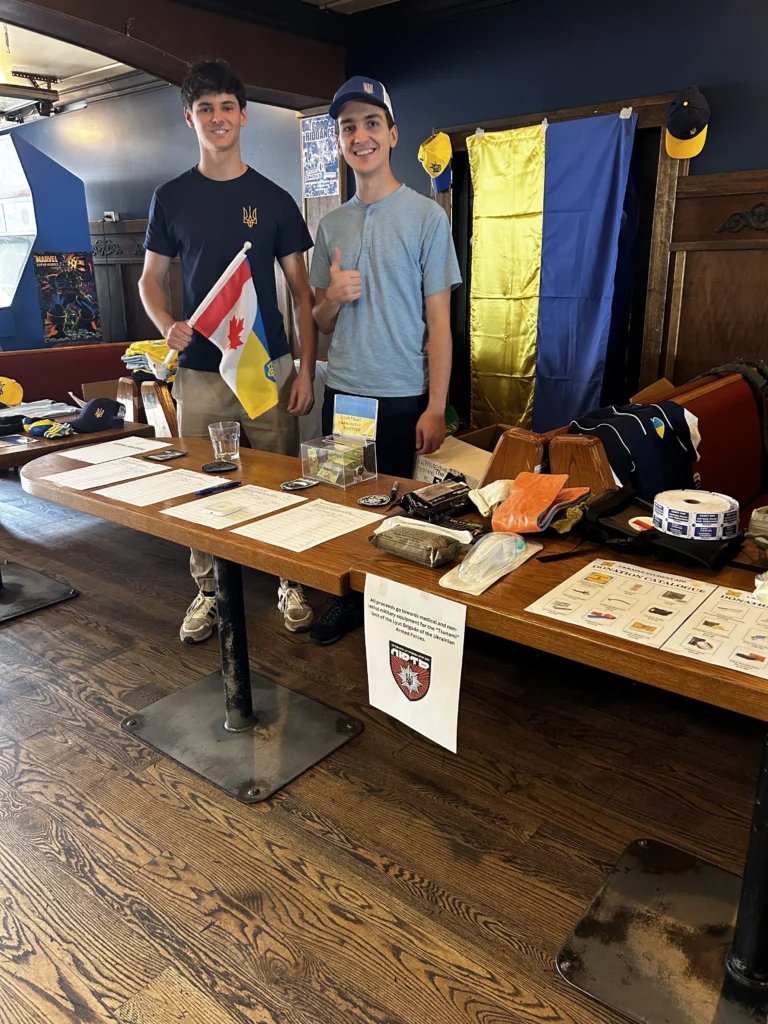
I had worked the night before at the Buck until past 3 a.m., and was back there by noon. It wasn’t like I had slept that well the week leading up to the event anyway. I skipped breakfast. As we helped the vendors load up, my anxiety went through the roof. I had no idea how it was going to turn out; I had no control of it at this point. So, there I sat, across from the Buckingham bathrooms at our table with Ukrainian merchandise, stickers, patches, and a sheet of paper showing the equipment we planned on buying. It was a hot, sticky day, but I had a cold sweat. The doors opened at 2 p.m.
It was slow, to say the least. It was strong to start, but an hour later, the event was pretty dead. I tried to hide my disappointment and anxiety, but I had to go to the alley beside the bar a few times to gather myself and prevent a panic attack. It wasn’t what we had hoped. As it turned out, there were two other markets happening concurrently in the city at the same time that we just couldn’t compete with. So, it was an uphill battle to begin with. I started going to all our vendors and giving them free drinks and seeing what else I could do to help them out. I think they felt for me, one person even gave me a hot dog. All I could do in my starving, sleep-deprived, anxiety-ridden state was to put on a brave face and hide my feelings. Things did end up picking up in the last hour of the market, and we did have a decent attendance for the concert and it seemed like a lot of people had a good time, which I tried to take solace in. I stayed there until midnight to take care of all the business and count up the money. At the end of the day, we raised around $4,300 which seemed like a measly sum for the equipment that we wanted to buy.
I took it really hard. In addition to my feelings of responsibility for the Ukrainians, I also felt a responsibility for the vendors whom I had persuaded to join the event. I felt like I had let everyone down. I can look back now and be proud of all the work I did and know that no one hated me or anything like that, but at the time, I just felt like the biggest dipshit alive. I had just spent months of my life on what I considered at the time a failed event. In reality, we were only a few university students who still raised a ton of money.
We were supposed to keep the momentum for the fundraiser going with another event which was planned to be a beer tasting event at a brewery. But, with the chaos of the first event, wires got crossed and connections were lost. I spent most of September trying to restart the planning for the event, but I essentially got ghosted. I was so exhausted at this point that I couldn’t even feel disappointment. All I had was the aching anxiety of breaking the news to the Ukrainians that we did not have much for them.
It was mid-October when Scala asked me if I had been successful in raising more funds for his unit. I just finally bit the bullet. I told him that we only had the $4,300 initially raised and that other opportunities for raising money had dried up despite my best efforts. To my surprise Scala responded with: “But everything is fine, I understand everything!! You already do a lot for us! Thank you very much for this!” It was a huge weight off my shoulders. I think I had this delusion that they were really relying on me — a student from Canada — to get equipment, which was ridiculous. The anxiety that had paralyzed me dissipated. With the funds we had, we decided to pivot and buy winter jackets which is an incredibly important piece of equipment that we could source for them.
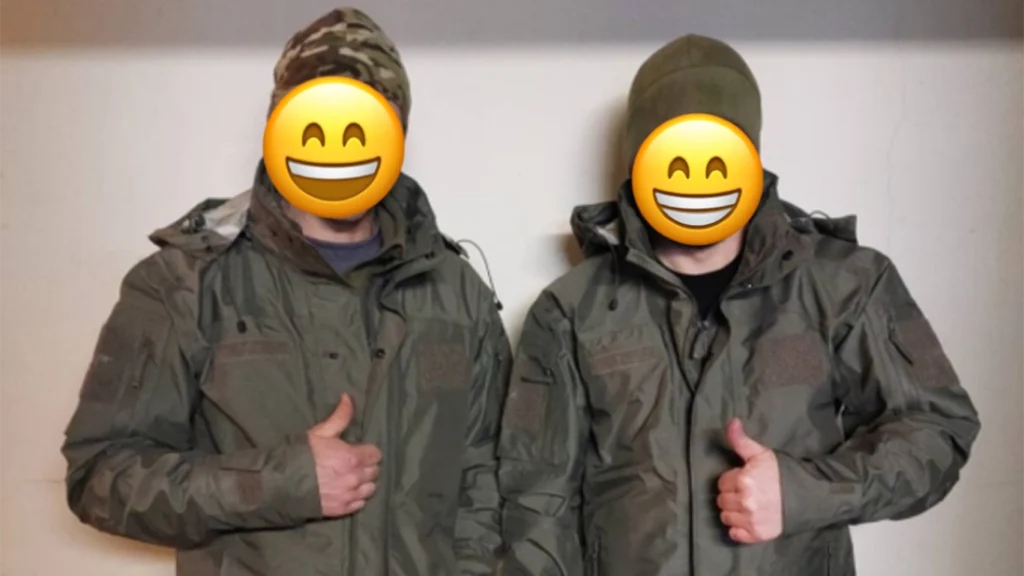
A lesson in international business
After consulting with Royle again, it became apparent there were two roads that we could go down to buy the jackets. One was to buy the jackets in Canada and ship them over to Ukraine with one of the many Ukrainian-Canadian organizations shipping aid over there. Royle connected me with Adam, a middle-aged Polish man who had experience getting equipment to the front. After an awkward cold call to explain who I was and the situation, Adam very eagerly agreed to help me. My first impressions of Adam over the phone were that he was a gruff, no-nonsense type of man; he was concise and direct and wasn’t afraid to voice his opinions. But, at the same time he was incredibly helpful and kind to me, recognizing that I was a complete novice in Ukrainian aid. He took me under his wing without abandoning me, for which I am still incredibly grateful for.
After wiring him the money raised in September, Adam soon gave me a list of potential jackets to buy, which I then forwarded to Scala. Right away, I realized there was a difference in philosophy between the two men. Scala was looking for quality coats, even if the amount that we could provide was low. He wanted jackets that were dependable in combat, but Adam wanted to get as many coats as possible, as they could be used in combination with other jackets to bundle up and be used in other seasons. So, for two weeks, I was the gentle mediator for two men arguing over what clothes to buy. Finally, it was decided that we would buy two types of jackets suitable for the unit that they would bundle together, a spring liner jacket and a thicker shell jacket for winter. We bought 15 for each type of jacket — 30 in all. It was a number I felt proud of. Adam even donated some canned food for the shipment for the soldiers on the front.
The plan to actually get the coats to the front changed about a dozen times. First, we planned to ship it to Scala directly from Poland. The issue was potentially getting hit by arbitrary border fees if we didn’t know someone at the border. It was much more reliable to have someone we trusted with connections physically take it into Ukraine. This was fine, until the shipment for the jackets got pushed back by the company we bought it from. Scala got involved directly as he knew someone going through Poland around the same time for the delivery date. I was elated when I was informed the shipment was picked up by Scala’s friend. But, it turned out that half of the jackets weren’t delivered on time. They were lost somewhere in Poland. It took about a week for Adam to track them down before they were delivered to the border town.
Where does that leave us?
On Dec. 27, I got word from Scala. The jackets had finally been delivered. After a near six-month odyssey, I had completed my goal of providing aid directly to Ukrainians on the frontline defending their country. Going into the new year, I honestly felt relieved to not be dealing with the fundraiser anymore. For the first time, I felt pride in what I and all the people I had so faithfully relied on had accomplished.
I am now able to look back fondly on the experience. The whole thing was a massive learning opportunity for me. I now see how monumental of a task it is to get aid to Ukraine and how much effort it takes to raise a few thousand dollars. The connections I’ve made and experiences I’ve learned from are some of the most important parts of the struggle for me. I’m so lucky to have met so many cool people in both Canada and Ukraine who are just as passionate to help as I am.
It hasn’t been a good few months for Ukraine. Despite stopping a major Russian offensive in October into November, you read less information about Ukraine on the news or social media. Russian ballistic missiles provided by North Korea slammed into populated civilian centers in multiple Ukrainian cities. Canada had promised Ukraine an air defense system to shoot down the missiles, but the government still hasn’t provided it. It seems like the Western countries and its people have shamelessly turned their back on the Ukrainians.
Now, we are captivated by another war. Palestine is the new focus of slacktivist social media. People can shift their focus away. For some reason, Ukraine and Palestine are being pitted against one another. People compare the death tolls of Palestinians versus Ukrainians, as if it’s a sport to see which group of people suffer more. Who does that benefit? It only serves in dividing us even more and making it more difficult for regular people to want to help.
What I did was difficult, but there are so many different ways of helping that don’t need to be a great struggle. Offering a few hours of time each week is a great start; it’s how I got started. There’s a need for different types of people with diverse skill sets. Help is always needed. It’s really fulfilling work that makes a change in the world, rather than helplessly doomscrolling.
One day this senseless war will be finished. But, until victory, I will stand by Ukraine. I know there are so many people at MacEwan with big hearts who just need to be pointed in the right direction. One day this senseless war will be finished. But, until victory, I will stand by Ukraine.
Graphic by Thai Sirikoone. Photos taken by Rory Dumelie

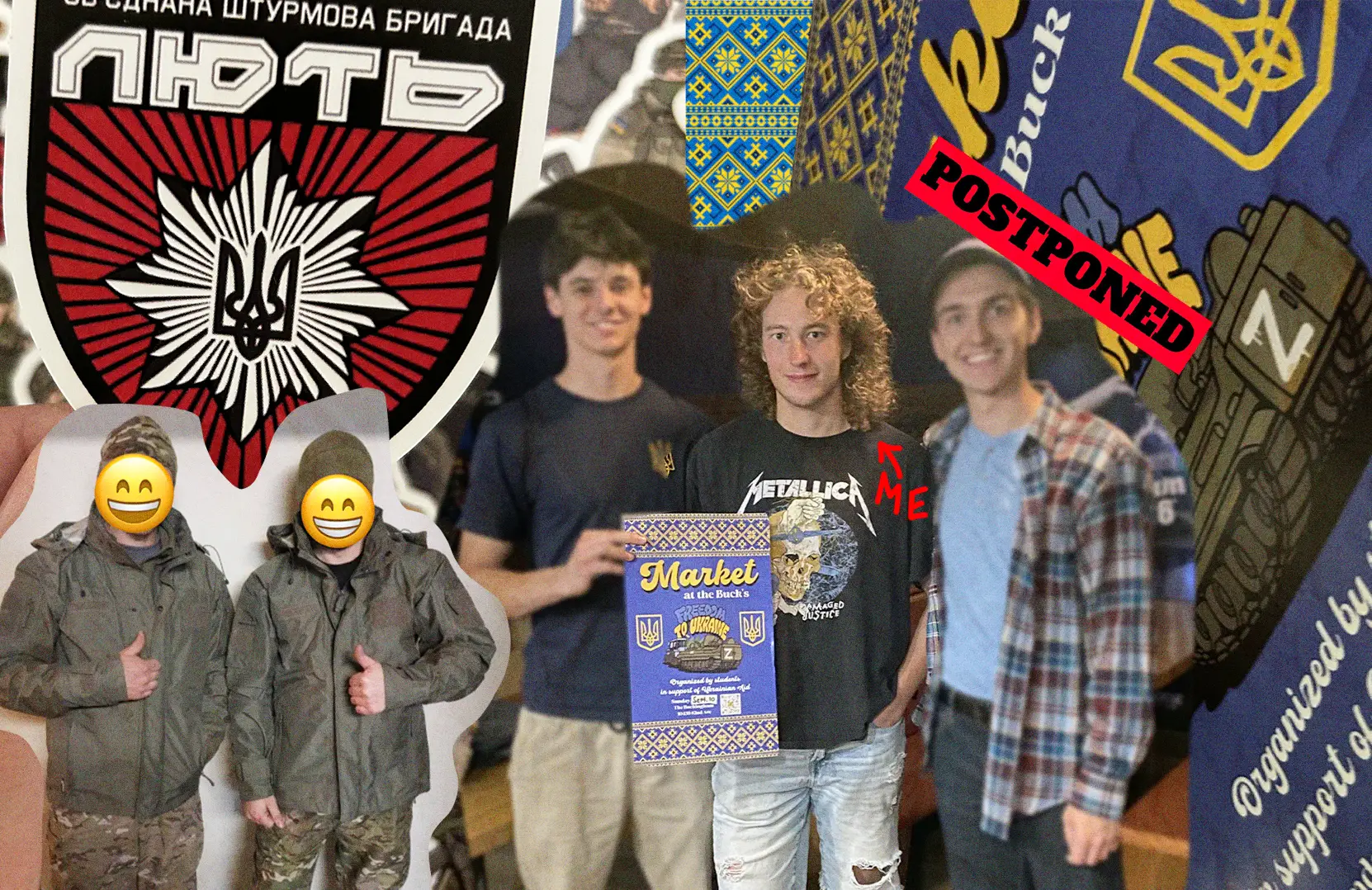
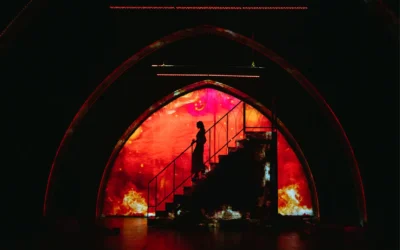
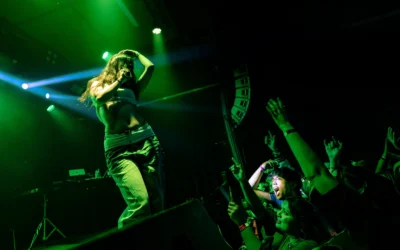
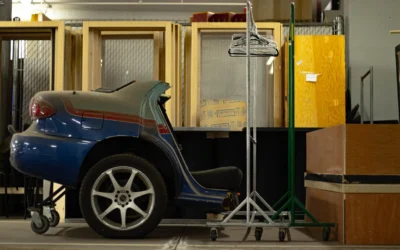
Such a mind-blowing and encouraging story of student activism in MacEwan! Hopefully, it will be a front cover piece!🤯🙏🏻
Thank you for being so supportive of Ukraine, Rory🥺
I think what you did means a lot to all Ukrainians